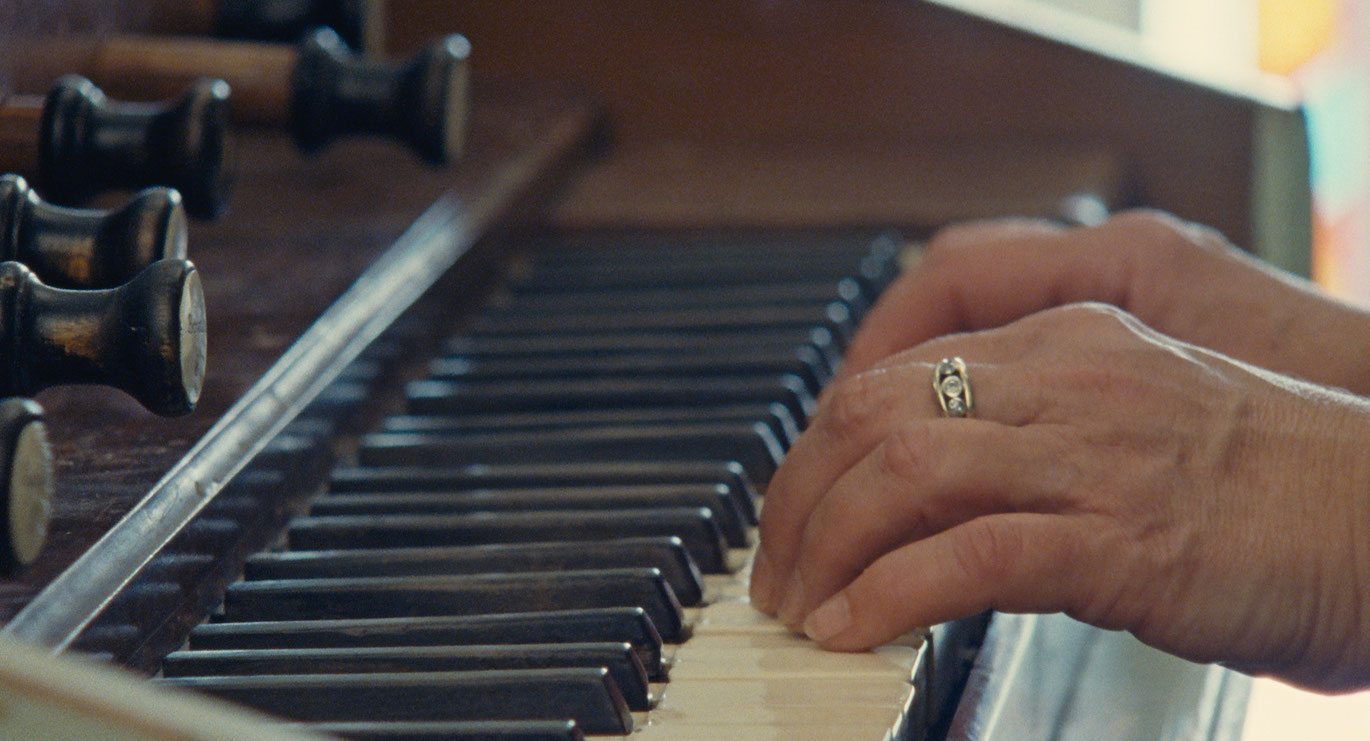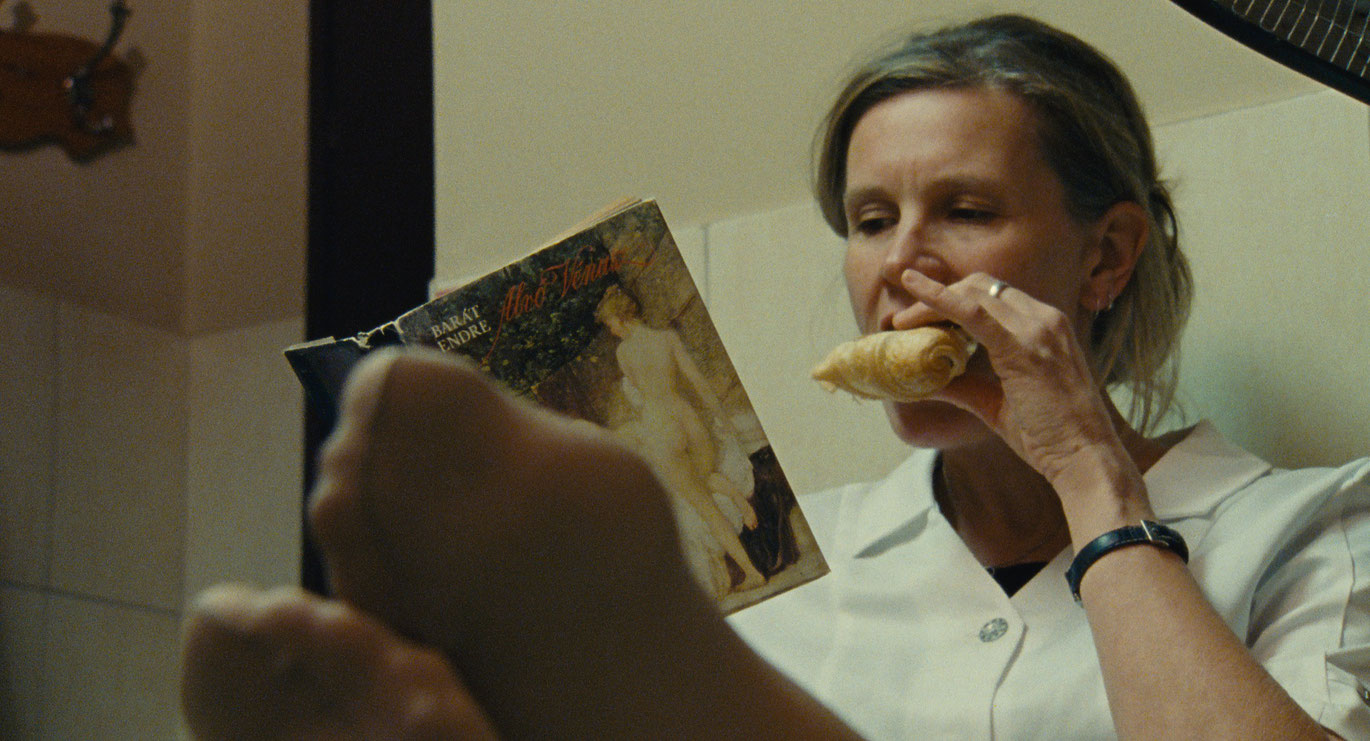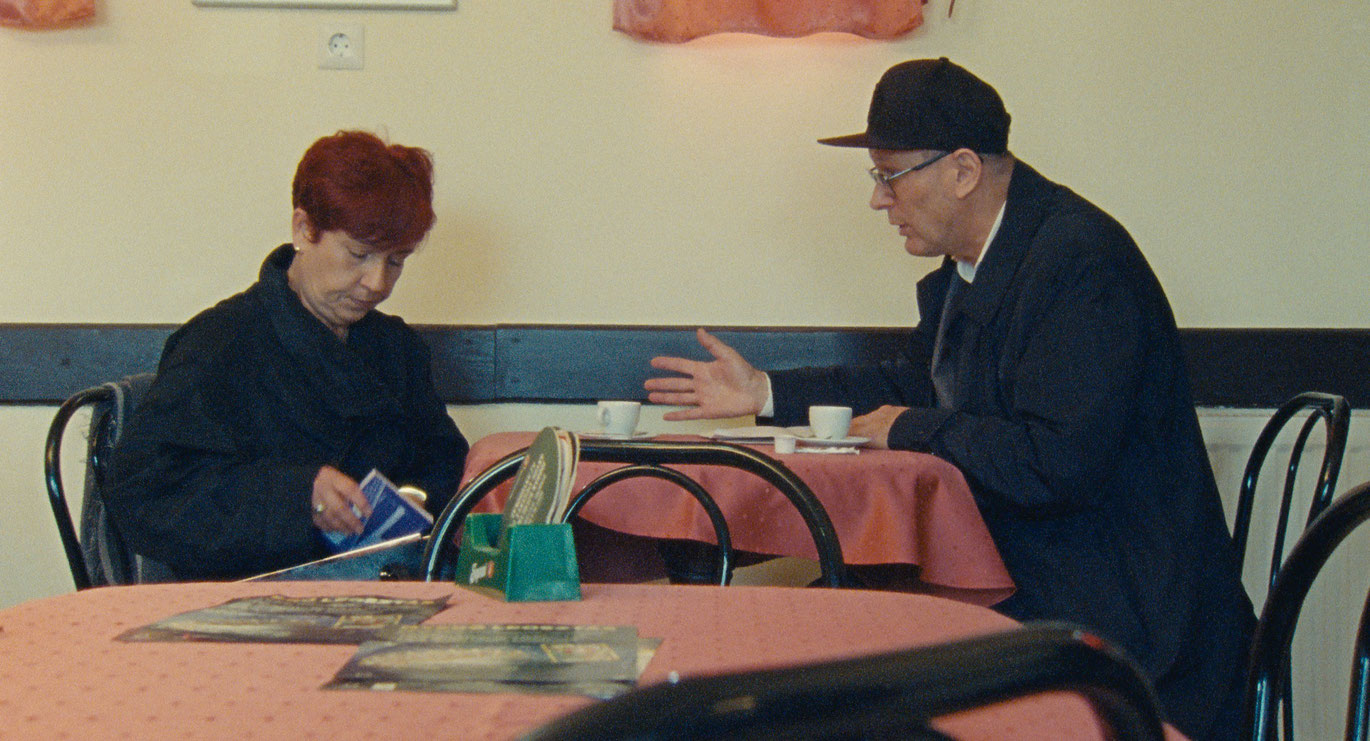All the Stops
A dominating woman directs several men who are renovating a villa in a small Hungarian town. It is by means of the precisely sequential movements enacted by this leading actress in the film's local unit that unfolds a possible narrative rooted in its formal nature. The well-known Dabernig actress Ingeburg Wurzer superbly plays her classic role, driving through town in concentric circles to supervise and discipline men carrying out the jobs assigned to them. That said, outfitted with rubber gloves, she insists on assuming the task of cleaning the windows herself. Her chauffeur and assistant must bring her the bucket of water, among his many other tasks: He drives her to the beauty parlor, to the gas station buffet, to the cemetery and to church where she plays a few minimalistic notes on the organ or strikes up a fortissimo Furioso while the chorus moves its lips in silence. With mischievous irony, Dabernig takes characteristic pleasure in details of decor, architecture, and culture native to the formerly communist part of Europe, highlighting the contradictions and clichés of the woman portrayed, as well as those of her reluctant gofers. Music and sound stand in contrapunctal and often temporally delayed relation to the plot, shifting between melancholy and disturbingly energetic, hyperreal accents.
With this film, Josef Dabernig has once again succeeded in creating a very precisely rhythmical film that inimitably interweaves image and sound to an extent that clarifies the absurdity of human endeavor with quiet humor, and entirely without words. (Brigitta Burger-Utzer)
Translation: Eve Heller
All the Stops
2020
Austria
16 min



